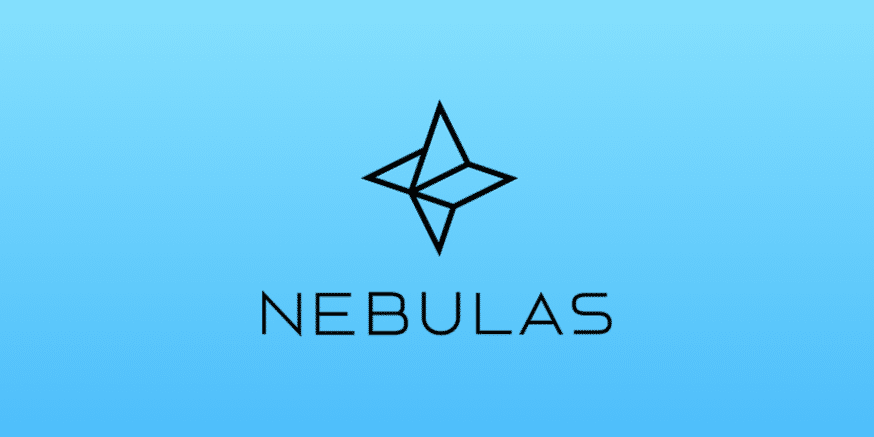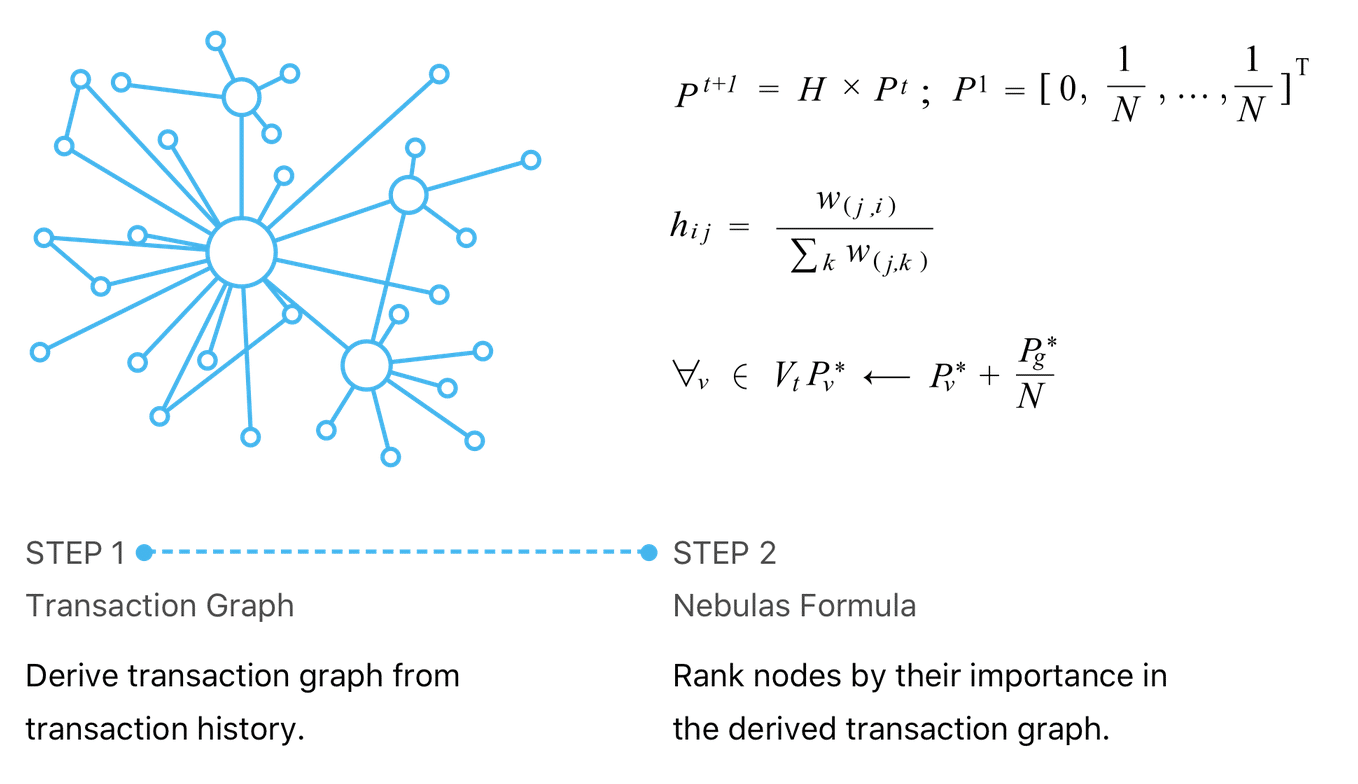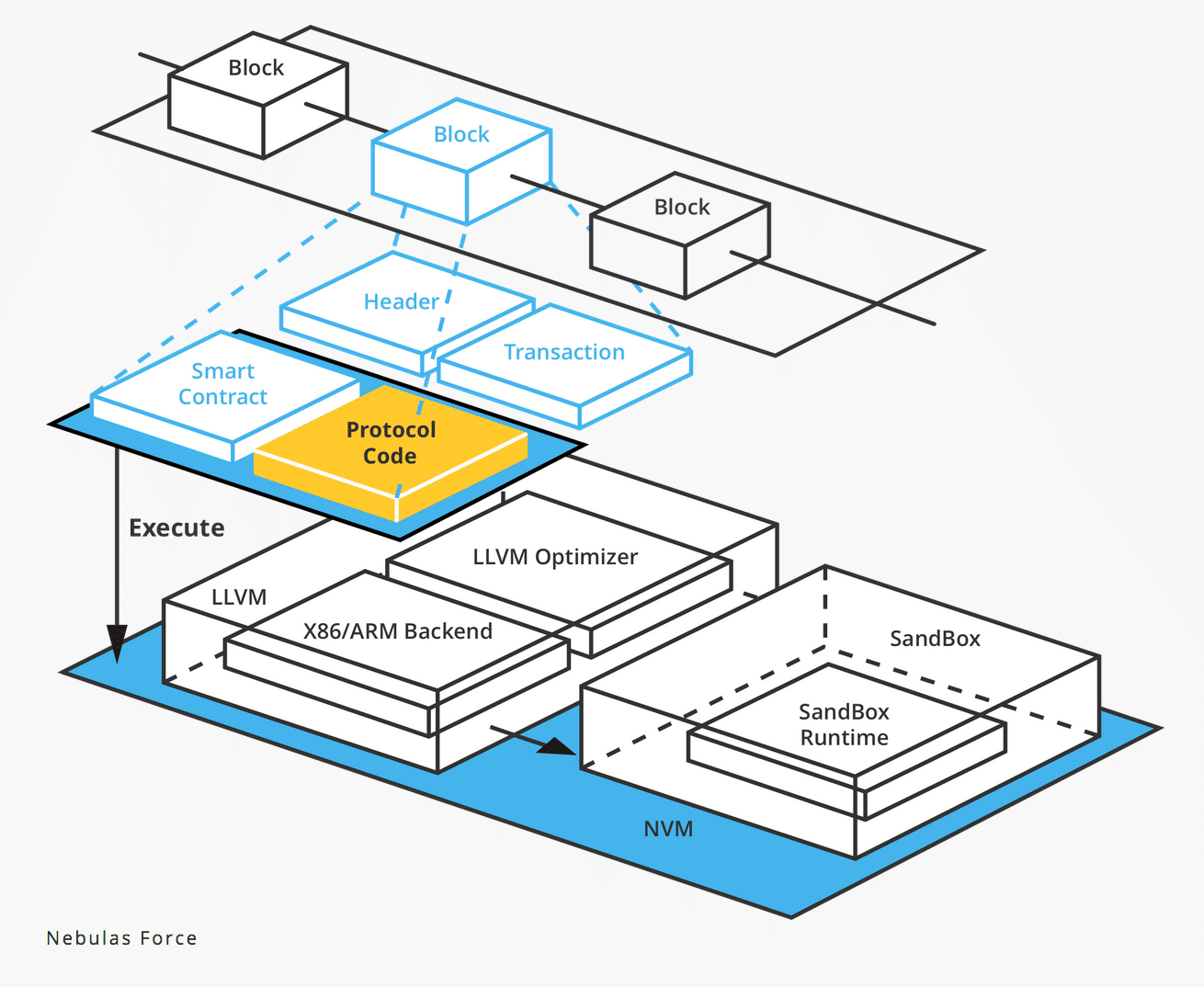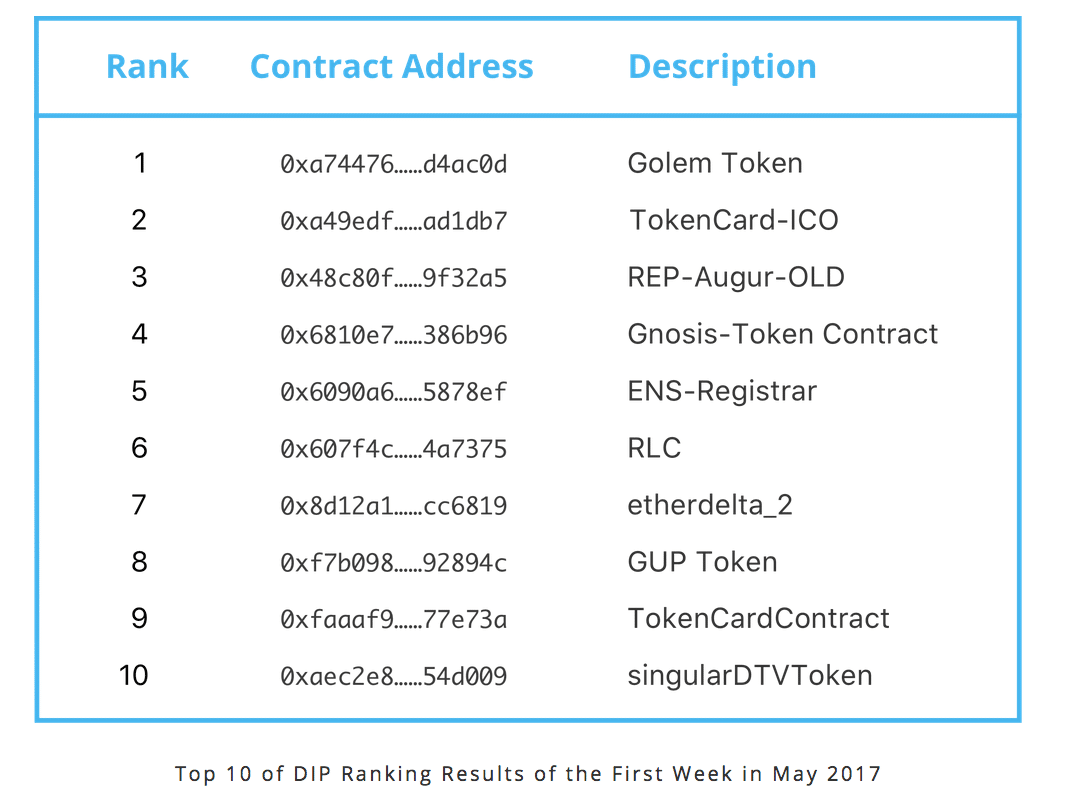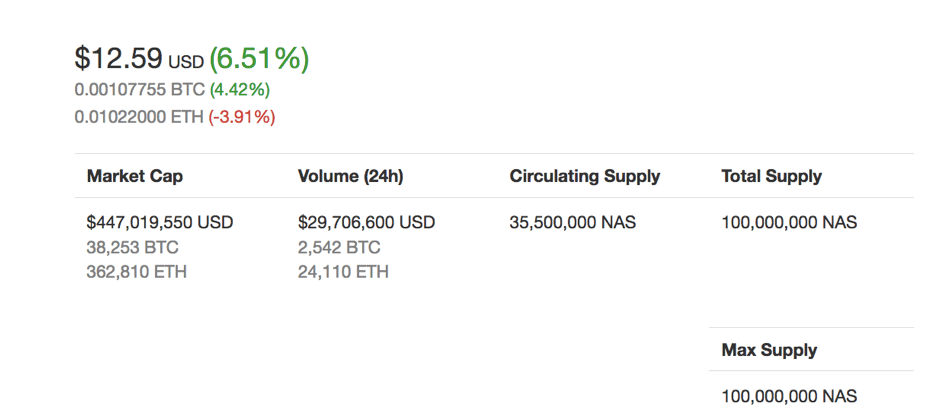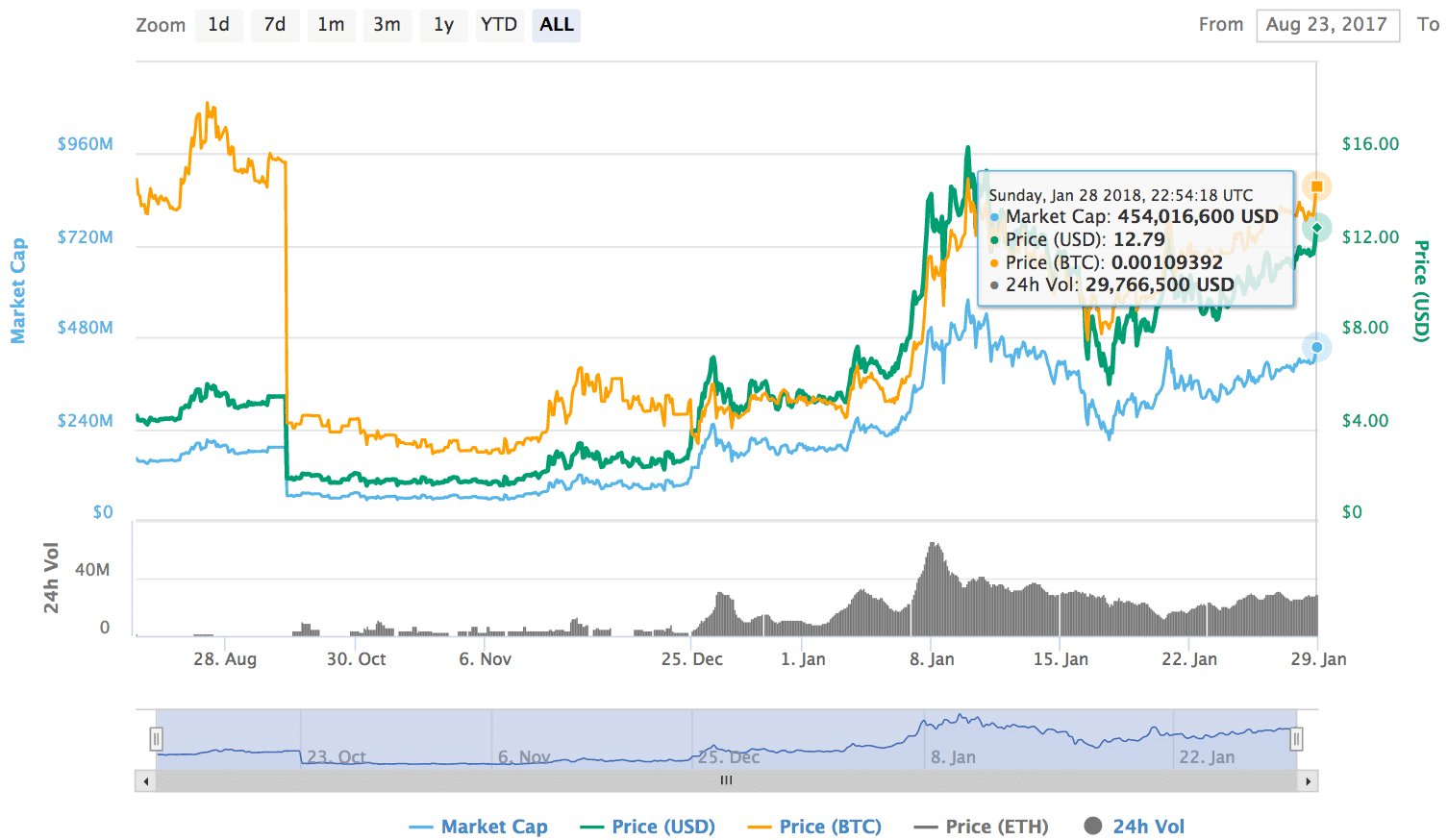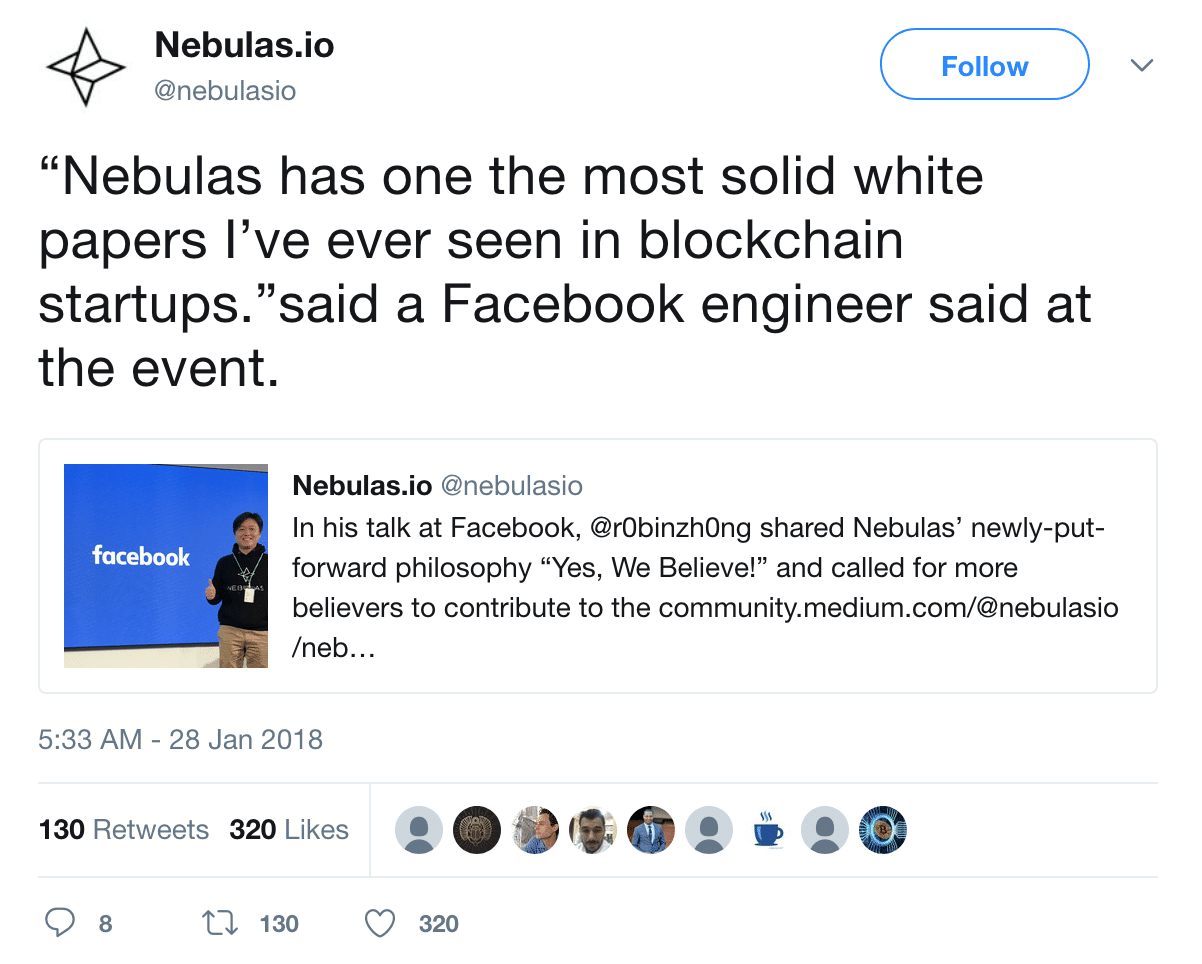- Key Features of Nebulas
- How Does Nebulas Work?
- About Nebulas
- Nebulas (NAS) Coin Supply
- Nebulas (NAS) Trading History
- Where Can You Buy Nebulas (NAS)?
- Where Can You Store Nebulas (NAS)?
- Conclusion
The Internet of the Future? A look into Nebulas, the New “Google for Blockchain.”
Nebulas is an incentive-based, self-evolving blockchain system with “a decentralized platform which provides a search framework for all blockchains.” Founded in 2017, the Singapore-based Nebulas IO Foundation’s project highlights include a search engine and up-gradable smart contract capabilities – things not currently feasible on Ethereum.
Many in the crypto community are referring to Nebulas as “the new Google”. While the two are similar in a sense, they hold different use cases. Google is intended for day to day internet information searches, while Nebulas focuses on searches among decentralized applications (DApps), smart contracts, and user’s blockchain assets.
As of now, the Nebulas (NAS) token is an ERC20 token. However, when the main net launches in March, NAS will switch over from the Ethereum blockchain to the distinct Nebulas chain.
According to its whitepaper, Nebulas’s mission is to “lead us to a better life with a higher level of freedom and equality”. The team hopes that its blockchain technology will help facilitate the turning of public data into private data, eliminating the chances of large corporations like Google, Amazon, and Facebook from analyzing/profiting from said data.
Key Features of Nebulas
- Nebulas Rank (NR): It sets up a universal blockchain measure of value. For example, you’ll be able to check the highest rated DApps and make better judgments.
- Nebulas Force (NF): Developer friendly solution that supports protocols/smart contracts flexibility. This helps the blockchain adapt to market demands and stops “forking” from occurring.
- Developer Incentive Protocol (DIP)/ Proof of Devotion (PoD): System to award developers with NAS for their contributions. It supports fairness and the best interests of these developers.
- Search Engine: It helps users find desired data (such as decentralized applications & smart contracts) in a massive market.
- Lightning Network Wallet: Essentially atomic swaps. You’ll be able to “swap” your NAS for any lightning network enabled coin.
How Does Nebulas Work?
“Nebulas is being built on a decentralized search framework with open-source algorithms, verifiable computing, and distributed data stores.” Its whitepaper is over 60 pages long and has an abundance of technical data that seems unfeasible to cover in a beginner’s guide. That being said, the Nebulas website’s simplified technology section addresses the three core features of its tech.
- Nebulas Rank (NR): Open source, core ranking algorithm based on “liquidity, propagation of users’ assets, and the interactivity between users.” NR will help rank various entities (e.g. smart contracts, addresses, DApps.)
- Nebulas Force (NF): “Nebulas Force (NF) provides the Nebulas blockchain & its distributed applications built on top, the capability to self-evolve” With NF, developers can update the protocol, preventing divides in the community from hard forks.
- Developer Incentive Protocol (DIP): Positive feedback loop in place to motivate DApp creation.
About Nebulas
Nebulas’s official website shows an international team of 14 core members, including Hitters Xu, founder and CEO of Nebulas (who also happens to be the founder of AntShares, now known as NEO). Xu is considered a pioneer in the blockchain industry, founding BitsClub (the very first Blockchain/Bitcoin community in China) in 2013 as well as popular ICO platform ICO 365. He also founded the crypto funds firm, FBG capital. On top of that, he directed an Alibaba financial arm (Ant Financial’s Blockchain Platform) and aided Google’s Search & Anti-Fraud team.
Co-founders Robin Zhong and Aero Wang bring years of blockchain expertise to Nebulas as well. Highlights in Zhong’s resume include him being an original architect of Ant Financial’s Blockchain Platform and the founder of Chinas first blockchain support platform, Tongxinclub.
Wang co-founded Antshares (NEO) with Xu and is an influential entrepreneur in the blockchain industry. The teams head of engineering, Duran Liu, is a former senior software engineer at both Google and FreeWheel and a former software engineer at IBM.
The three advisors (Edith Yeung, Chris McCann, and Evan Cheng) to the project are also influential members of the business/blockchain communities. Yeung is an avid tech investor, a partner at 500 Startups, and has been featured in Inc’s Magazine article “The Silicon Valley Investors You Need to Know in 2016”.
McCann established the community program at Greylock Partners (investors in Coinbase, FB, Airbnb, Linkedin, etc). Moreover, McCann was an early advisor for the Thiel Fellowship at Stanford University and was a co-founder of StartupDigest.
Last but not least, Cheng is an engineering director at Facebook with a prior 10-year development career at Apple. He’s received the ACM Software System Award for his contributions to computer science. These are just a few highlights of the overall Nebulas team. For further details on the project’s employee base, check out their official team page here.
[thrive_leads id=’5219′]
Nebulas (NAS) Coin Supply
Nebulas has a total supply of 100 million NAS with a circulating supply of 35,500,000 NAS. As of now, the token ranks 66 in terms of the total market cap with a value of $447,019,550 USD.
The pre-sale round sold 30% of the total amount of NAS tokens, and the founding seed round (back in June of 2017) sold 5%. 20% of NAS are reserved for developer teams and founders, with the remaining tokens to be used for “operational use and ecosystem construction”.
Nebulas (NAS) Trading History
The NAS token began trading on exchanges in early August for around $5 and hit ATH’s of nearly $16. At the time of writing, the price of a single NAS coin is $12.79 USD, giving the coin more than a two-fold increase since its inception. The price could increase further with the launching of the main net.
Where Can You Buy Nebulas (NAS)?
You can buy Nebulas on exchanges like Huobi, Gate.io, OKEx, and EtherDelta. However, you must first deposit either Bitcoin or Ethereum onto your respective exchange wallets as these two cryptocurrencies are a NAS trading pair.
We suggest using reputable sites when initially purchasing cryptocurrencies. Coinbase and Bitstamp are popular choices that allow for credit card purchases and wire transfers. You can also use CoinMama to get your initial cryptocurrencies but it’s often associated with higher fees.
Where Can You Store Nebulas (NAS)?
The Nebulas token was originally created as an ERC20 token but will soon be on its own network. This means that you can purchase the current NAS token and store them on Ethereum wallets like MyEtherWallet, MetaMask, and Coinomi.
When the change occurs, though, you may need to change your wallet in order to store the Nebulas network’s built-in NAS token. According to the team, NAS will be swapped on a “1:1 basis for native NAS tokens on the Nebulas blockchain after the Mainnet release.”
Therefore, if you are looking for simplicity in storing NAS, it may be easier to wait to purchase it until the change occurs. The company will also be announcing further instructions on this in the near future.
Conclusion
Nebulas seems to hold one of the strongest teams in the blockchain industry. As well, the Nebulas project addresses three major issues that currently exist in blockchain technology: the lack of a universal measure of value (which should measure the value of users/smart contracts), the inability for system upgrades (often leading to hard/soft forks), and the lack of a healthy ecosystem to support a great user experience.
The team believes that as the number of DApps grows, users will need help navigating through the enormous amount of applications to find the one they want. As well, encouraging and assisting developers in the construction of DApps is needed. “Take Ethereum for example. Hundreds of thousands of apps have been built on Ethereum now, and when the number of blockchain DApps reaches that of Apple App Store, how to search and find the expected DApp would be a big challenge.”
This ambitious project certainly has major undertakings ahead if the team intends to complete everything outlined in its whitepaper. It will also be interesting to witness how this relatively new blockchain project competes in the massive sea of all the other ones.
Learn more about Nebulas
Never Miss Another Opportunity! Get hand selected news & info from our Crypto Experts so you can make educated, informed decisions that directly affect your crypto profits. Subscribe to CoinCentral free newsletter now.






